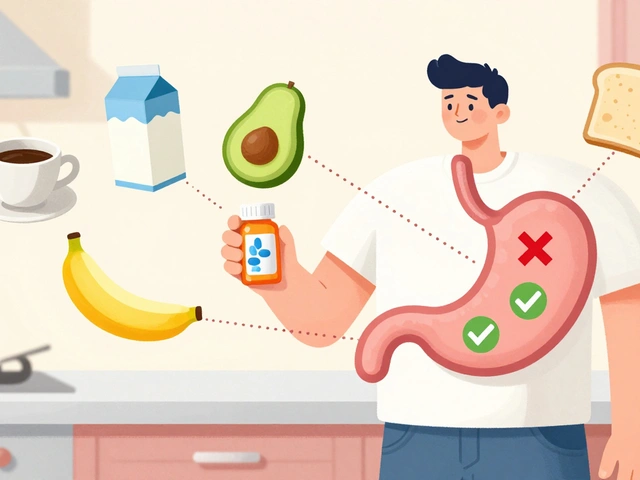February 2025: Canagliflozin and Safer Options to Motilium
This month we published two practical reads: a hands-on guide to canagliflozin for Type 2 diabetes and a clear look at alternatives to Motilium for digestive symptoms. If you want actionable tips — not jargon — start here. Below you’ll find what each article covers and quick steps you can use right away.
Canagliflozin: Quick, Practical Guide
Canagliflozin is an SGLT2 inhibitor that helps remove extra glucose through urine. For many people with Type 2 diabetes it lowers blood sugar, can aid modest weight loss, and may reduce blood pressure. That makes it useful when lifestyle changes and other meds aren’t enough.
Common side effects include urinary tract infections, genital yeast infections, and increased urination. Less common but serious issues include dehydration and a rare risk of diabetic ketoacidosis even when blood sugar isn’t very high. Before starting canagliflozin, check kidney function — the drug works best when kidneys are healthy enough.
Practical tips: take it at the same time each day, drink enough water, and monitor for signs of infection. If you’re on a diuretic, or have low blood pressure, tell your prescriber; doses or timing may need adjusting. Always report sudden fatigue, nausea, or fast breathing — those can be warning signs of ketoacidosis.
Motilium Alternatives: What Works in 2025
Motilium (domperidone) has been restricted in some places because of heart-related risks. If you’re looking for other options, there are both drug and non-drug choices that can help nausea, bloating, and slow digestion.
Drug options include metoclopramide (often used short-term, but watch for movement side effects) and certain anti-nausea meds prescribed for specific causes. Non-drug options are practical and low-risk: ginger (fresh or tea) for mild nausea, peppermint oil capsules for irritable bowel symptoms, and digestive bitters to stimulate digestion. Lifestyle changes matter: eat smaller meals, avoid trigger foods (fatty or very spicy meals), and don’t lie down right after eating.
If symptoms are chronic or severe, ask your doctor about testing for reflux, H. pylori, or motility issues before switching meds. Always consider heart-safe choices if you or your prescriber are concerned about cardiac risk.
Want more detail? Read the full posts on each topic for dosing notes, side-effect checklists, and real-world tips. Bookmark this archive if you want fast access to February 2025 coverage, and always run medication changes by your healthcare provider before trying something new.
Augmentin is a commonly prescribed antibiotic, but it's not for everyone. There are several alternatives that can be effective depending on the type of infection and individual health needs. This article explores seven alternatives, shedding light on their pros and cons. Whether you're allergic to Augmentin or looking for a different treatment option, understanding each alternative will help in making an informed decision.
View DetailsCanagliflozin is a powerful tool in the battle against Type 2 diabetes, working as an SGLT2 inhibitor to help lower blood sugar levels effectively. This article breaks down how Canagliflozin functions, its benefits in controlling diabetes, and practical tips for patients. It also covers potential side effects and considerations to keep in mind. Learn why Canagliflozin might be a good fit for managing diabetes with some real-world insights on its usage. Navigate the ins and outs of this medication and discover how it can support healthier living.
View Details


